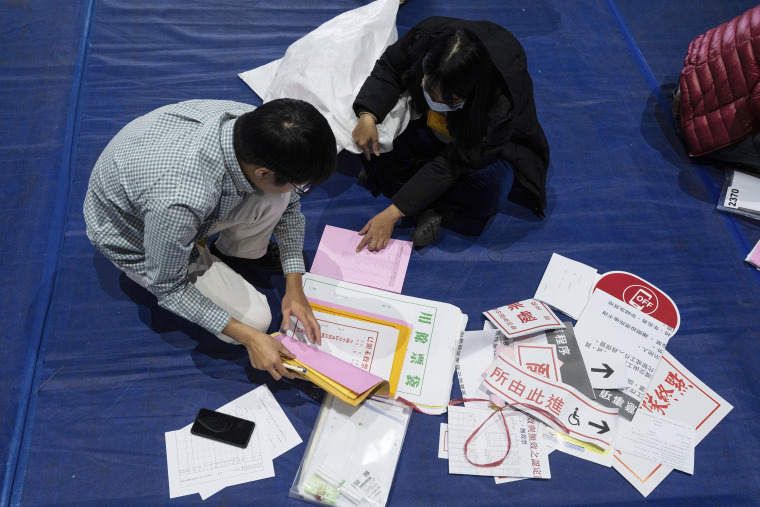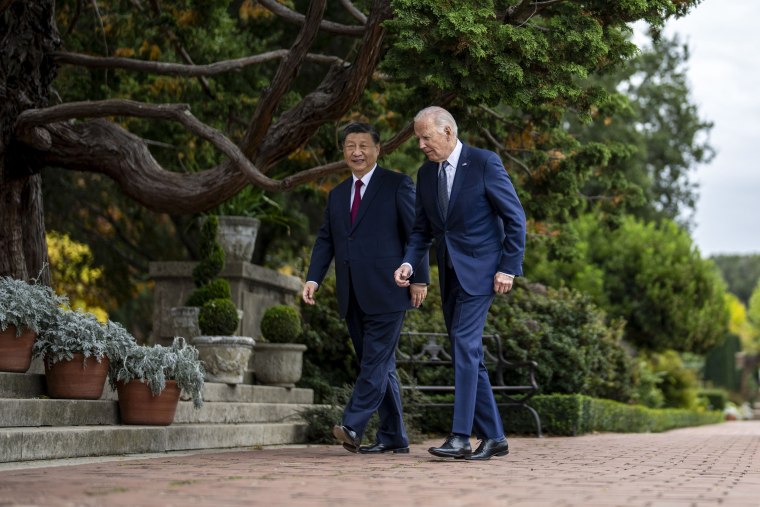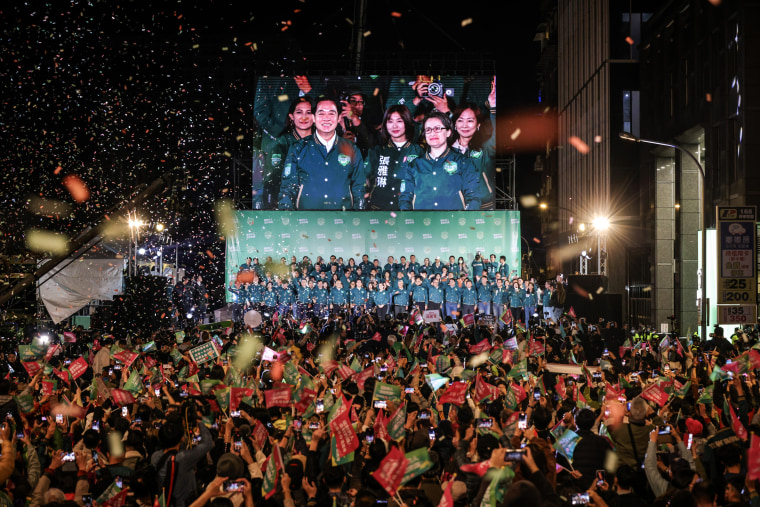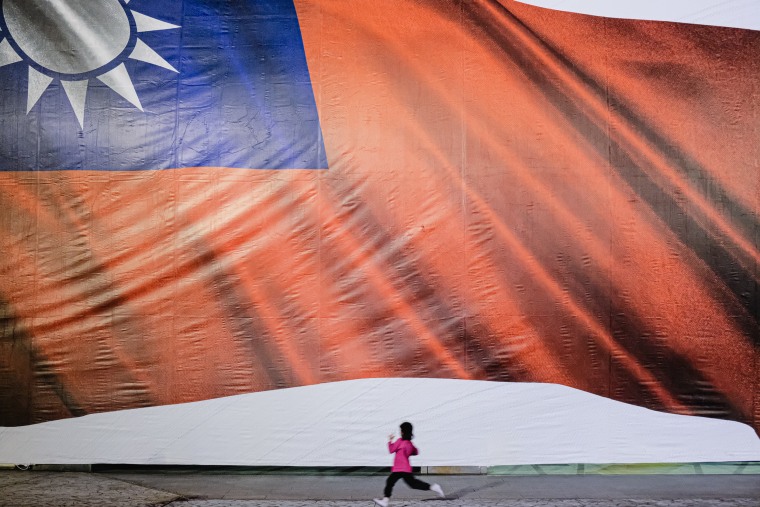TAIPEI, Taiwan — Voters in Taiwan elected Vice President Lai Ching-te as their next president on Saturday, defying warnings from Beijing not to support a candidate it has called a separatist and a “troublemaker.”
The election, which China had described as “a choice between war and peace,” could test recent efforts by Beijing and Washington to repair relations that in recent years have fallen to their lowest point in decades. The status of Taiwan, one of the strongest democracies in Asia, is among the most sensitive issues between the two superpowers, and focus will now turn to any potential show of force from Beijing in response.

China claims Taiwan as its own territory and has not ruled out the use of force against the island, while the U.S. is Taiwan’s most important international backer. The majority of Taiwan’s 23 million people are in favor of maintaining the status quo, neither formally declaring independence nor becoming part of China.
Lai’s victory extends the eight-year rule of the Democratic Progressive Party (DPP), which is considered the least friendly to Beijing. Relations between Taiwan and China have deteriorated under President Tsai Ing-wen, who was first elected in 2016 and is limited to two terms.
Voters in Taiwan, especially younger ones, were concerned not just with China policy but with economic issues such as unemployment, housing costs and income inequality.
Lai won with 40% of the vote, compared with 33% for Hou Yu-ih of the main opposition party, the Kuomintang, and 26% for Ko Wen-je, founder of the populist Taiwan People’s Party. Hou and Ko, who both favor closer ties with Beijing, had argued that the DPP’s policies toward China were too confrontational.
It is the first time in Taiwan’s almost 30 years as a democracy that the same political party has won three consecutive terms. But the DPP lost control of the legislature, which experts say could constrain Lai’s policy options.
At a news conference after his victory on Saturday, Lai said he would continue foreign affairs and national defense in line with Tsai’s policies. China cut off direct dialogue with Taiwan after she was elected in 2016, and has rebuffed offers of talks with Lai as well.
Lai, 64, who will take office for four years starting May 20, said he hopes that China will “understand that only peace will benefit both sides of the strait. In addition, global peace and stability depends on peace in the Taiwan Strait. We hope that China understands the situation, because China also has a responsibility.”

After the election on Saturday, China’s Taiwan Affairs Office said Taiwan was part of China and that the election could not “stop the general trend that the motherland will eventually be reunified.”
It had earlier warned Taiwan voters against supporting Lai, describing him as a “stubborn Taiwan independence advocate” who if elected would promote separatist activities and “create a dangerous situation” in the Taiwan Strait.
Lai’s victory was welcomed in the U.S., which Secretary of State Antony Blinken said was “committed to maintaining cross-Strait peace and stability” in a statement congratulating Lai.
The Congressional Taiwan Caucus said it looked forward to working with Lai and that “in the face of escalating threats to Taiwan’s democracy and security, it is imperative that the United States remains steadfast in support of the people of Taiwan and our shared commitment to democratic values.”
House Speaker Mike Johnson said in a post on X that he would be asking the chairs of the relevant House committees to lead a delegation to Taiwan after Lai’s inauguration in May.
President Joe Biden said Saturday that the U.S. — which recognizes Beijing as the sole legitimate government of China but maintains unofficial relations with Taiwan under its longstanding “One China” policy — does not support Taiwan independence.
The White House said this week that after the election, the U.S. would send an unofficial delegation to Taiwan, in what a senior Biden administration official said was an effort to manage tensions and prevent inadvertent conflict.
The question now is how China will respond. Beijing has in the past fired missiles and staged military exercises in response to developments in Taiwan it doesn’t like, and Lai’s victory could bring another show of force.

Taiwan’s government had already accused China of trying to interfere in the election through military and economic pressure as well as disinformation campaigns, while China accused it of “hyping up the threat from the mainland” to gain voter support.
Chinese leader Xi Jinping “is unlikely to accept this defeat gracefully,” said Craig Singleton, a senior China fellow at the nonpartisan Foundation for Defense of Democracies.
“It probably won’t take long for Beijing to register its anger over the result, and its response could be swift and severe,” he said in emailed comments, with possible actions including military drills, new trade restrictions on Taiwanese companies, and intensified cyberattacks on Taiwanese infrastructure.
But while China may be tempted to “punish” Taiwan, it is also reluctant to provoke either Lai or Washington, said Daniel Russel, vice president for international security and diplomacy at the Asia Society Policy Institute in New York.
“Xi Jinping has invested considerable effort and credibility in tamping down tensions with the West, both to lower China’s profile in an American election year and to buy space to deal with myriad problems at home,” he said in emailed comments.
Voters turning up to cast ballots in the election on Saturday, which had turnout of more than 70%, told NBC News that Taiwan’s relationship with China was among the issues they were most concerned about.
Ryan Lu, a 32-year-old from Taipei, said the most important issue for the next leader should be “ensuring peace.”

“These sensitive matters are what I’m most concerned with,” he said, referring to the possibility of a conflict with China. “I know the chances are small but then again, who really knows — just like with the Ukraine-Russia war, who would’ve thought it would really be like this?”
Lai has presented himself as “Tsai 2.0,” said Lev Nachman, a political scientist and assistant professor at National Chengchi University in Taipei.
“What that means is from a cross-Strait relations perspective, we’re not likely to see a lot of change in the PRC-Taiwan dynamic, which is to say it’s going to remain very icy,” Nachman said, using the initials for China’s formal name, the People’s Republic of China.
Beijing says it is willing to hold talks only if both sides agree that Taiwan is part of China, a policy reiterated by senior Chinese official Liu Jianchao during a visit to the U.S. this week and one that the DPP says it cannot accept.
Following Lai’s victory on Saturday, Nachman said on X that it was “less about Lai winning over hearts and minds of undecided voters” and more about the opposition KMT and TPP parties’ failure late last year to “co-ordinate a joint ticket,” producing a three-way race that “made Lai’s victory much, much easier.”
He added that if the two opposition parties had run on a combined ticket, “I do not think Lai would have won.”
With Lai’s election, “we’re likely to see the same level of threats we see from the PRC, but threats don’t equal conflict,” Nachman said, noting that neither China nor Taiwan wants to go to war.
The U.S. and China, the world’s two largest economies, have increased their interaction since a November meeting in California between Biden and Xi, their first encounter in a year.

This week, in what appears to be partly an effort to protect the fragile gains in their relationship from tensions over the Taiwan election, the U.S. and China resumed long-frozen military talks in Washington, while Commerce Secretary Gina Raimondo had a call with her Chinese counterpart, Wang Wentao.
Blinken also met with Liu, the senior Chinese official, on Friday. The State Department said Blinken reiterated the importance of maintaining peace and stability in the Taiwan Strait, and that both sides “recognized the importance of continuing to maintain open channels of communication.”
Janis Mackey Frayer reported from Taipei, Taiwan, and Jennifer Jett reported from Hong Kong.






